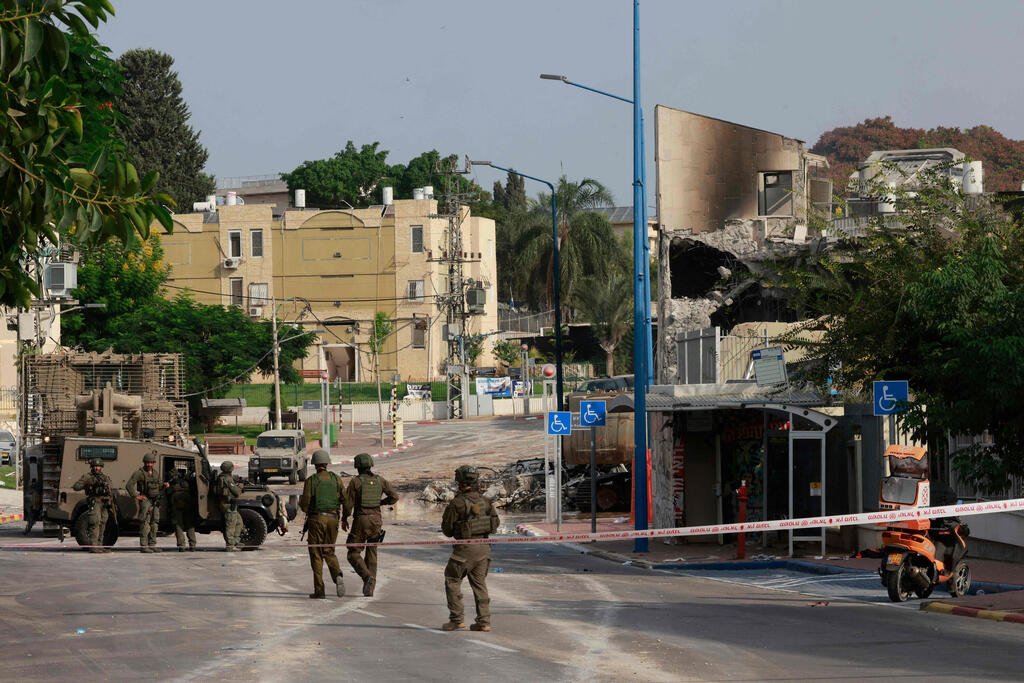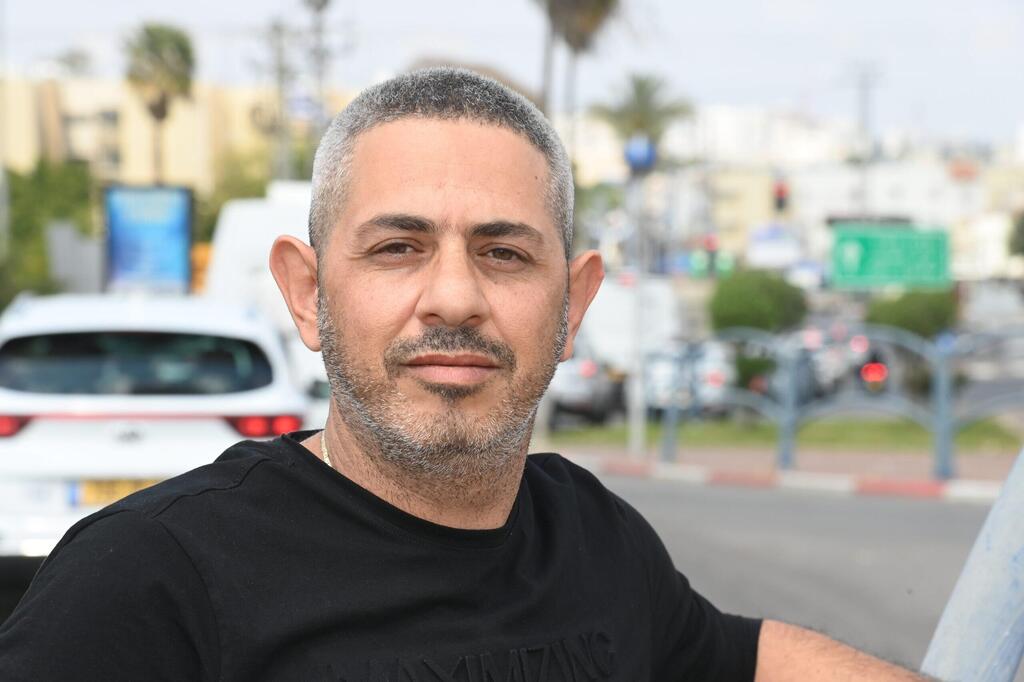More than seven months have passed since the October 7 massacre, and the memories from those hours still haunt Roni Isacov. "I have flashbacks from time to time," he said. "It's something you can't forget. Like the Holocaust." Isacov, a father of four, was born and raised in Sderot.
He was once injured by a rocket fired from Gaza, but nothing prepared him for the intensity of the trauma he has been dealing with since October 7.
3 View gallery


Sderot police station came under attack by terrorists on October 7
(Photo: Menahem KAHANA / AFP)
"We're used to sirens every now and then, 'drizzles' as call it in the country," he said, "But that morning was different. I asked my wife and children to lie under the bed. There were terrorists near our house. For hours we were silent and in darkness so they wouldn't see that there were people in the house. Sunday morning, I decided to take the children to my parents. The little ones slept on the floor of the car, and my eldest daughter insisted on sitting next to me. At the beginning of the journey, we heard gunfire. My daughter's screams, 'Dad, they're shooting, I'm afraid to die,' are burned into my memory to this day, along with what we saw outside. Horrors. Bodies, tanks in the city."
The first days after the massacre were extremely difficult, and the vivid memories accompany him to this day. "They assigned us to a hotel in Eilat," Isacov continues, "At first, I couldn't leave the room. I kept hearing my daughter's screams. To this day, there are places in the city that bring back memories. I'm being treated at the Resilience Center. It helps me a lot, and slowly, I'm returning to myself. Without the treatment, I would have been lost."
Sleepless nights
Liora Eilat, from Moshav Yevul, also describes a mental struggle that still accompanies her to this day. "It's not behind us, it's completely present in our lives," she said. "Now it's just more detailed, spread out before our eyes. None of us sleeps as we should at night."
Eilat, a mother of three children, was at her home in the Eshkol Regional Council when the sirens began that morning. "We arrived at the safe room within less than ten seconds, the electricity was cut off, and there was almost no internet or reception," she recalled.
"After about two hours, we started to understand what was happening around us. One of the children asked me what to do if the terrorists came in, to attack them with a knife? Let them kill me? Or let them take me? Overnight, we already received messages about many people we know who were murdered. We sat and cried until morning," she added.
"I have many blanks from that day. I'm being treated at the Resilience Center. It's not normal to talk about these things all day long, it's not normal to think these thoughts, it's not normal to turn on the TV and start crying. But apparently, for us, it's part of life. No one really knows how long we'll be like this," Eilat said.
Help is on the way
With the reality described by Isacov and Eilat, many residents of the Gaza border communities are struggling, but the treatment is far from sufficient. "There are people whose post-trauma is surfacing just now when they return home," explained Chen Shemer, a trauma psychologist and interventionist at the Resilience Center in Sderot, "This means it's not a matter of time because everyone reacts differently."
Shemer, a resident of Sderot herself, has been working at the Resilience Center since Operation Protective Edge. "We're currently in a completely different situation," she said, "There are many people who are having trouble readjusting to a routine, whereas even traumatized people in the past dealt with high anxiety and functioned somehow. Many of the people I treat have very high levels of anxiety. They can't leave the house, or they're willing to leave only with an escort. They experience depression because they feel betrayed and abandoned."
According to Shemer, the number of therapists at the Resilience Center has tripled in recent months, but there are still long waiting lists. "People aren't getting treated because even there aren't enough psychologists and psychiatrists in the clinics," she said.
Currently, the Jewish National Fund is working to open additional centers, including a large one in the Eshkol Regional Council, which will grant treatment to thousands of patients. The center is expected to open in about 18 months.
"We're in a long event, and people deserve treatment," Shemer concluded. "Sometimes it's 12 sessions, sometimes it's 24. We see results, but there are triggers. Suddenly, there's a siren, a rocket falls in the city, and it causes very significant regression. Living in a constant state of emergency has many implications."




